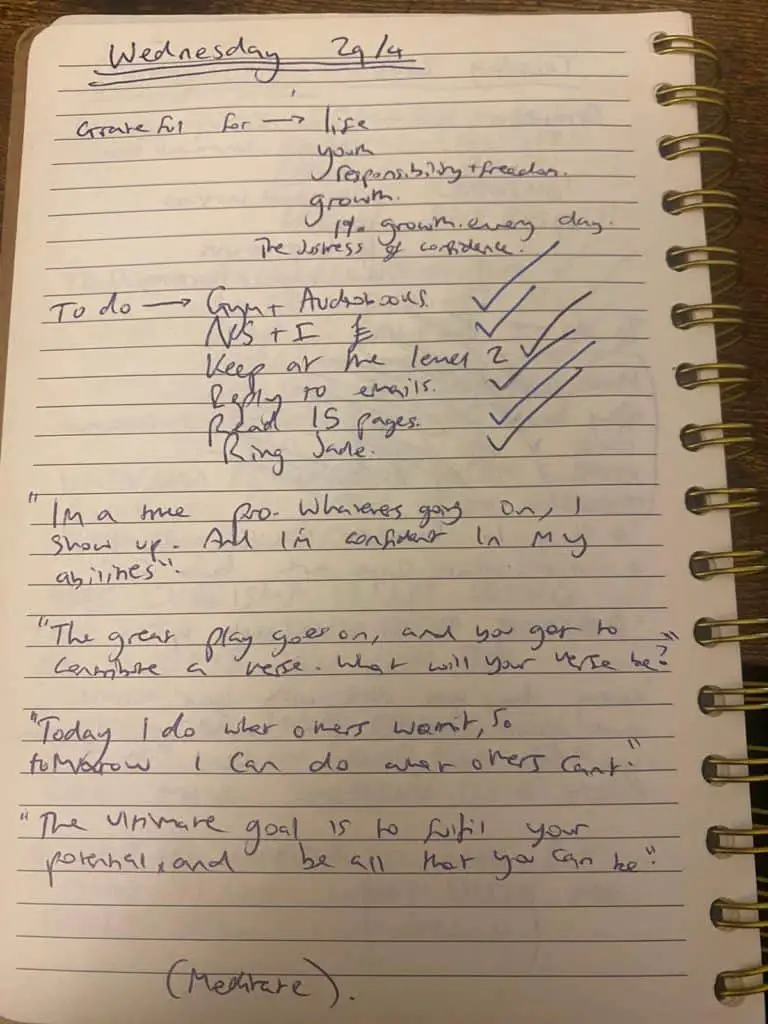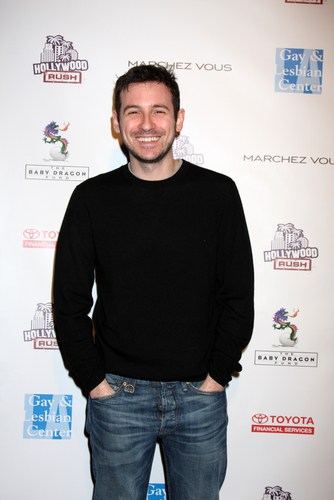Why Do I Feel The Need To Plan Everything?
Introduction
I know it’s kind of a personal question.
Do people think that you’re a bit-
You know…
Overplan-ny?
Yes?
Then we aren’t so different. you and I.
I wanted to fully understand why some of us make such detailed plans about our lives. I also wanted to understand the benefits and drawbacks of living this way. So I’ve done some research.
This article contains everything that I’ve found out about making plans. I’ve also shared the perspectives of high performing writers, generals and athletes, and given practical advice on how to best go about planning your life.
I hope what I’ve learned can help your development.
My own experience over-planning things
If it isn’t obvious already, I am writing this because of my own experience with over planning.

I have been a serial planner for as long as I can remember.
I like to write to do lists for myself at the start of the day, but it goes way beyond that. Whether it’s in my career, this website, my relationship- I cannot help but project things way into the future.
“£10,000 saved in the next 6 months”
“10,000 pageviews by the end of the year”
“This job for 2 years, then that job for 3 years, then this job for 3 years after that”
(I won’t give a relationship example because she’ll read this!)
These are all examples of the kind of overplanning that I am personally guilty of. Whilst it’s great to have goals, and clear goals at that, there must be a point where goal setting goes from productive and considered to unrealistically specific and overly meticulous.
If I think about it, these kinds of goals have worked for me in the sense that they do drive me to take action and work hard towards my future.
On the other hand, when you set such a detailed goal you can’t help but feel like you’ve failed when you fall short, even when significant progress is made.
Setting goals like this also implies that you can completely control your own outcomes, when in reality life can come at you with all kinds of adversity. It’s not like you can account for everything that will happen to you in the future, when you first set your goals.
Here’s something I wrote down once when I was frustrated with my financial situation, which I think captures some of what we are talking about:
If I plan to save £10,000 and I save £6800, did I fail?
Read also: 25 achievable life goals by age 25
Different schools of thought about planning everything
To get some balance of opinion about the topic of over-planning, I have scoured the internet for some different perspectives on the best way to plan your future. Here are the words of 3 writers from different backgrounds. All are original thinkers, and all are profound in their own way.
Jordan Peterson
“I plan my day obsessively. My calendar is always absolutely full and often weeks in advance. I plan the morning, especially when I’m on top of things. And I plan each hour, and I probably plan each minute. And yes, it leads to way higher productivity.
You decide what your goals are going to be, you place them in your calendar. Use the calendar as your friend, eh. Because what you do with the calendar is plan a day that you wanna have, or a day that would be good for you. And a day that would be good for you is one where…when you end the day, you feel that you’ve moved yourself ahead towards your valued goals…That enables you to sleep soundly and with a good conscience”
Here’s the full clip:
Dan Harris

In his book Meditation for Fidgety Skeptics, Dan Harris has a refreshing take on goal setting and planning that can be applied to your life generally, far beyond meditation.
He talks about making meditation a “dailyish” practice. Here are his own words:
“Dailyish provides enough elasticity so that if you fall off the wagon for a day or two or three, you can still start up again, and that’s totally fine.”
I find this idea powerful- Pushing for daily commitment, without any kind of self loathing or negativity if you skip a day here or there, might be a way to have the best of both worlds.
Mitch Albom

The following quote comes from The time keeper, written by renowned columnist Mitch Albom. It provides a contrasting perspective to that of Jordan Peterson, and touches on the drawbacks of stringent time keeping:
“Try to imagine a life without timekeeping. You probably can’t. You know the month, the year, the day of the week. There is a clock on your wall or the dashboard of your car. You have a schedule, a calendar, a time for dinner or a movie. Yet all around you, timekeeping is ignored. Birds are not late. A dog does not check its watch. Deer do not fret over passing birthdays. Man alone measures time. Man alone chimes the hour. And, because of this, man alone suffers a paralyzing fear that no other creature endures. A fear of time running out.”
The pros and cons of planning

The benefits of planning
- Seeing yourself move towards a goal that you value causes positive emotion and fulfillment.
- Planning your time based on your goals helps you to avoid getting distracted by activities that do not serve you in the long run.
- A specific plan provides a criteria for success. If you do not specifically plan your time, you might feel anxious that what you are doing is insufficient.
- Planning your life forces you to make hard decisions about what is important to you and what you must sacrifice. This can help you to become more aware of who you are.
The drawbacks of planning
- Planning feels productive even without action. If you’re not careful, you can feel like you are making progress when you are really just planning!
- Oftentimes when planning we are hoping for things that are not entirely within our control. We can control only what we do, and so you’ll often find yourself physically unable to achieve what you initially planned for.
- Very occasionally in life there are brilliant opportunities that come out of nowhere. If you are so dead set on sticking to your own plan whatever the cost, you might end up missing out on something incredible.
Shifting my perspective about planning my life
Through writing this article, it seems to be that no-one is against planning and goal setting altogether. That being said, we must approach our plans with a level of flexibility and understanding if we are to move through life most effectively.
Read Also: Why is being respectful important?
Plans change
One thing that I have found to be true in my own life, is that plans change. Not through lack of ambition or “giving up”, but more because what you know about the world and the opportunities you see are constantly shifting.
When I first became a chef, all I wanted was to be a great chef, work under great chefs, and one day make my own name as one of the best. Then I learned about the kind of life that would provide, and my goals shifted towards a more entrepreneurial path.
These shifts have happened countless times throughout my life, and usually lead to me dramatically changing how I use my time.
But these shifts are caused by your own intuition. And to ignore taking a new path, when it calls you, is to dampen your own pursuit of fulfillment.
Practical advice for over planners
I found some great practical advice about planning and goal setting when watching Ali Abdaal interviewing Oliver Burkeman. Here is the full clip below, as well as the excerpt that stood out to me as most significant.
“I do think that ‘doing your best’ and ‘being proud of things’ are important values in life but I can see how they are not particularly helpful in this setting (making plans) because it’s completely open ended.
So either you would end up not doing what you could’ve done because you’d say well, that was my best so I don’t care (you make it easy for yourself)…or, you would be convinced that trying your best is important and then torment yourself by constantly asking yourself ‘is this my best? Is this my best??’
This is where I think quantity based goals can be really helpful. If you say I’m going to put out this number of videos, or I’m going to write this many words by a certain point, firstly it’s specific. Secondly it’s within your control. And thirdly it is somewhat drained of the emotive(ness) of qualitative goals. There’s something kind of nice about a very very mechanistic goal”
(He then goes on to counter his own point by talking of the value of having a vision for your own future. Check out the full video for Burkeman’s full perspective.)
8 high achievers and what they have to say about planning
“In preparing for battle I have always found that plans are useless, but planning is indispensable”
D. Eisenhower
“A good plan violently executed now is better than a perfect plan executed next week”
George Patton
“If you don’t know where you are going, you’ll end up someplace else”
Yogi Berra
“Plans are of little importance, but planning is essential”
Winston Churchill
“So that morning in 1962 I told myself: Let everyone else call your idea crazy . . . just keep going. Don’t stop. Don’t even think about stopping until you get there, and don’t give much thought to where “there” is. Whatever comes, just don’t stop.”
Phil Knight
“Plan your work for today and everyday, then work your plan”
Margaret Thatcher
“The reason that everybody likes planning is because nobody has to do anything”
Jerry Brown
“Speaking from my personal experiences, setting goals, along with a detailed action plan, has actually changed my life from one cast in frustration to one of purpose.”
Catherine Pulsifer
“Success doesn’t just happen. It is planned for”
anonymous
Great resources for people who over-plan
If you struggle with over-planning and the anxiety that results from that, one book that I would highly recommend is Four Thousand weeks by Oliver Burkeman.
This is a book about time, but Burkeman makes some great points about our limitations as humans and the stress that is caused by obsessing over how we spend our time.
I have written an in depth, chapter by chapter summary of four thousand weeks that you can check out here. But I would like to provide a quote from the book below- to give you some idea of the book’s contents and, I would argue, genius.
“Our lives, thanks to their finitude, are inevitably full of activities that we’re doing for the very last time. Just as there will be a final occasion on which I pick up my son—a thought that appalls me, but one that’s hard to deny, since I surely won’t be doing it when he’s thirty—there will be a last time that you visit your childhood home, or swim in the ocean, or make love, or have a deep conversation with a certain close friend. Yet usually there’ll be no way to know, in the moment itself, that you’re doing it for the last time. Harris’s point is that we should therefore try to treat every such experience with the reverence we’d show if it were the final instance of it. And indeed there’s a sense in which every moment of life is a “last time.” It arrives; you’ll never get it again—and once it’s passed, your remaining supply of moments will be one smaller than before. To treat all these moments solely as stepping-stones to some future moment is to demonstrate a level of obliviousness to our real situation that would be jaw-dropping if it weren’t for the fact that we all do it, all the time.”
Another great resource for people who struggle with over-planning is Dan Harris’ Meditation for Fidgety Skeptics.
Learning to live in the present alleviates much of the anxiety caused by worrying about the future, and this book is specifically written for people who hate talking about this kind of thing.
Closing thoughts
If you enjoy content like this, consider checking out my latest article called How to journal for self improvement. It is practical advice based on science, personal experience and the wisdom of elite performers like Martina Navratilova and Leonardo da Vinci.






